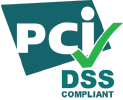One of the most frequently offered reasons for a failed certification program is that “it was never marketed correctly.” In truth, a sustainable credentialing program is dependent on a number of key factors. Let’s explore the essential foundations of a sustainable credentialing program that is set up to grow and scale.
Such a blanket statement cloaks the possibility that there was never a sustainable market to begin with.
Either prospects had no interest in formal certification because there was no employer support, or there were competing, easier alternatives for professional development.
Or maybe the market was just too small and slow growing to support a certification program.
In the end, there just weren’t enough test candidates.
Meaningful market research, had it been done, would have revealed this gaping flaw.
But when the high cost of a formal market research combines with the credentialing committee’s belief (sometimes, conviction) that the market is already known, reachable, growing and ready for certification, market research suddenly looks optional.
Essential Market Research Just Doesn’t Get Done
Certification development is a sequential process. Sidestepping or shortcutting the process in the beginning always causes pain in the end—often well before.
Saving both time and money is easy justification for leapfrogging market research, but consequences of doing so can be grave.
In truth, certification marketing is often an afterthought getting attention only in the run-up to the launch of the exam.
Your Marketing Plan

A functioning marketing plan is essential for countering low test volumes during the program’s first few years when the biggest struggle is anonymity. It takes time, money and marketing to generate awareness, visibility, buzz and acceptance. The sooner marketing starts in the test-development process, the better.
It’s not unusual for a quickly developed credentialing program to be met with wall of market apathy, especially if the credentialing committee didn’t allow enough time to build awareness for the credential—and for the market to respond.
Credentialing candidates need time to evaluate and internalize marketing messages and to plan, budget for and prepare for taking the certification exam.
A credentialing program’s marketing plan should include:
- A communications calendar
- Internal and external public relations
- Prospect and candidate surveys (before and after certification launch)
- User-friendly marketing collateral
The certification marketing plan follows on the heels of market research in order to drive home marketing’s essential function first in defining the target market and then in implementing ongoing strategies and tactics to position (and sometimes reposition) the certification in the minds of prospects, candidates and certificants.
Throughout the life of the certification, marketing will easily consume tens of thousands of dollars and hundreds of staff hours to sustain the program as it matures. Market research and marketing plans should be updated every few years to keep pace with the program’s needs at each stage of the product life cycle. (As mentioned in other blog posts, treating your credentialing program as a product creates the right mindset for making better business decisions about its direction).
For a credentialing program to be sustainable over the long term, it must be responsive to and aware of market needs. Ongoing research is key to informing a nimble and targetted marketing plan for an enduring, long-term program.
***
You read above that certification is a sequential process. That’s especially true of actual test development, which will be all the more purposeful when market research identifies the target market and the particular pain that certification will alleviate or eliminate.
The Kryterion Psychometrics Team has worked with dozens of clients in multiple industries and witnessed the persistent problems caused by poorly executed or no market research.
For a free, no-obligation, no-stress phone call with one of our friendly psychometricians, just fill out our short form here.
We’ll send you an email to schedule a convenient time for the call. Again, no obligation on your part after the call.
We’d love to answer your questions about test development and hear about your current, first or next credentialing exam.
Talk soon!








